How Iodine Affects the Brain and Nervous System
Brain and nervous system development is strongly impacted by thyroid health. As such, the nutrient, iodine, plays an important role in general nervous system health at least in part via its role in thyroid gland health. This is our point of departure into the premise that nutrient iodine levels impact nervous system health. Most people could search for a connection between hypothyroidism and Complex Regional Pain Syndrome (CRPS), for example and find something meaningful. It is harder to find scientific studies that talk about iodine supplementation for nervous system health. They exist, but they are carefully covered and often very hard to find.Scientists who have studied the connection between brain health and iodine believe that iodine levels in the body play a role in genetic expression. Studies have shown that certain brain and nervous system structures are more profoundly affected by iodine deficiency than others namely:
- Hippocampus
- Myelin
- Neurotransmitters
Thyroid hormones are essential for proper brain function and development throughout life. Without iodine, thyroid hormones simply cannot be produced.

Click here to schedule a health coaching session with us.
Iodine Deficiency and Multiple Sclerosis
Anyone who has received a diagnosis of multiple sclerosis is probably familiar with the theories regarding geographic distribution of this disease, sunlight exposure, and vitamin D supplementation. It’s unfortunate that multiple sclerosis has been dumped into a bucket with vitamin D as this so-called “vitamin” (which, by the way, is not a vitamin at all because the body can produce it naturally when exposed to sunlight), causes a lot of woe and health problems that would not exist without the media always promoting vitamin D supplementation.Vitamin D as a supplement (versus the natural vitamin D produced in human skin) should be used with great care most of the time because vitamin D when administered with vitamin K2 (and the other fat-soluble vitamins for that matter) can lead to high levels of calcium in the blood supply. In turn, high levels of calcium lingering in the bloodstream can inhibit the absorption of bio-metals like iron or iodine to the great detriment of human health. Big Pharma knows this and each day, a new news article promoting vitamin D supplementation hits the mainstream (funded by Big Pharm, of course) to keep people supplementing with this dangerous “health” product.
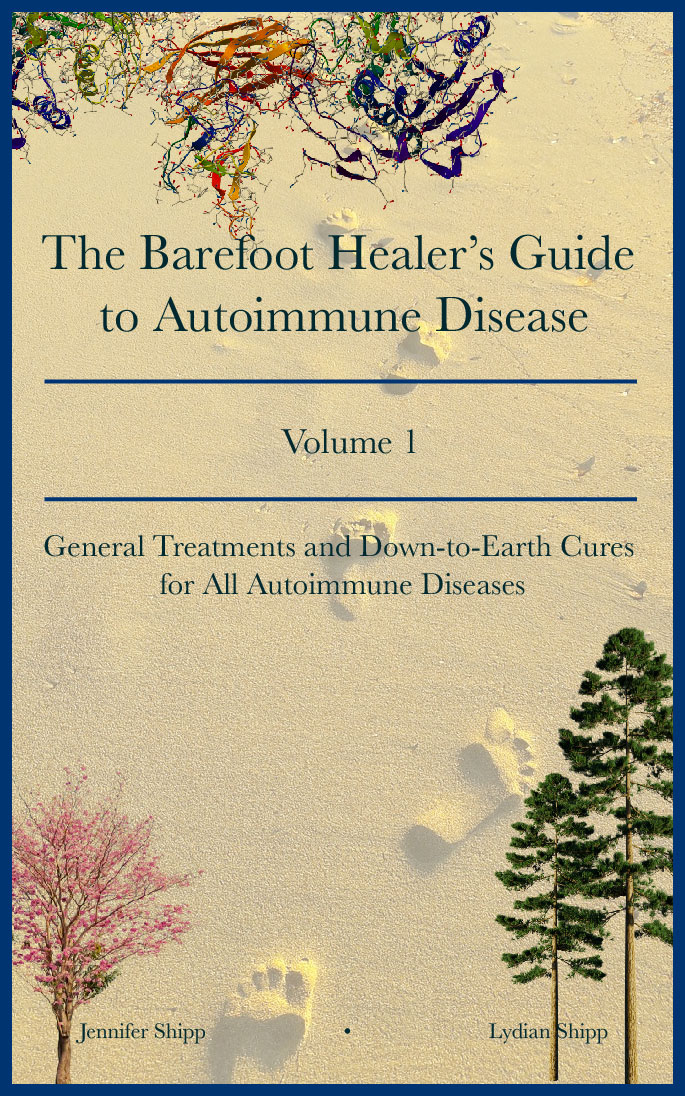
The Barefoot Healer's Guide to Autoimmune Disease, Volume 1 - BUY HERE!
Vitamin D is the darling of Big Pharma, particularly vitamin D supplements that do not also include vitamin K2 to balance its effects. Vitamin D2 (partially activated) and vitamin D3 (fully activated) is a nutrient that quietly and slowly causes harm without anyone becoming wise to the problem. And while, as a stand-alone nutrient without the other fat soluble vitamins, it causes health issues like atherosclerosis and osteoporosis, vitamin D without the balance of vitamin K2 also inhibits any good from coming from iron or iodine supplementation. This is why vitamin D is so heavily promoted and always in the media spotlight. As a stand-alone “nutrient” supplement vitamin D keeps Big Pharma in business.Multiple sclerosis is unfortunately one of the nervous system diseases that is most heavily impacted by iodine deficiency. The geographical distribution of this disease corresponds to areas of the world where iodine is deficient in the soil. Soil deficiency leads to iodine deficiencies in plants that cows and other milk and meat-producing animals eat. In turn, people in these areas of the world end up with more serious iodine deficiencies than people living in areas with higher levels of iodine in the diet (for example, island nations where people eat a lot of seaweed) don’t have to contend with. Scientific studies have made the connection between iodine deficiency and multiple sclerosis as well as Alzheimer’s, Parkinson’s Disease, and Amyotrophic Lateral Sclerosis.
 The Kid-Friendly Medicines Living Database - NOW AVAILABLE! Click here to sign up...
The Kid-Friendly Medicines Living Database - NOW AVAILABLE! Click here to sign up...
Studies have shown that iodine deficiency can cause a reduction in brain weight, deficiencies in myelin production, slowed neuronal maturation and growth, lower levels of enzymes and proteins as well as diminished RNA synthesis. Scientists have noted that a combination of iodine deficiency and selenium deficiency is heavily correlated with multiple sclerosis. Essentially, iodine deficiency (along with a deficiency of the supportive nutrients) can lead to demyelination of nerve fibers and symptoms of multiple sclerosis.
If you or a loved one is searching for a natural cure for multiple sclerosis, begin with the Lugol's iodine protocol, but also read more about vitamin B12 deficiency which can also cause symptoms of MS. Vitamin B12 deficiency often coexists with iodine deficiency. Click here to read more about vitamin B12 as one of the natural cures for MS.
Click here to read more about the relationship between multiple sclerosis and iodine deficiency.
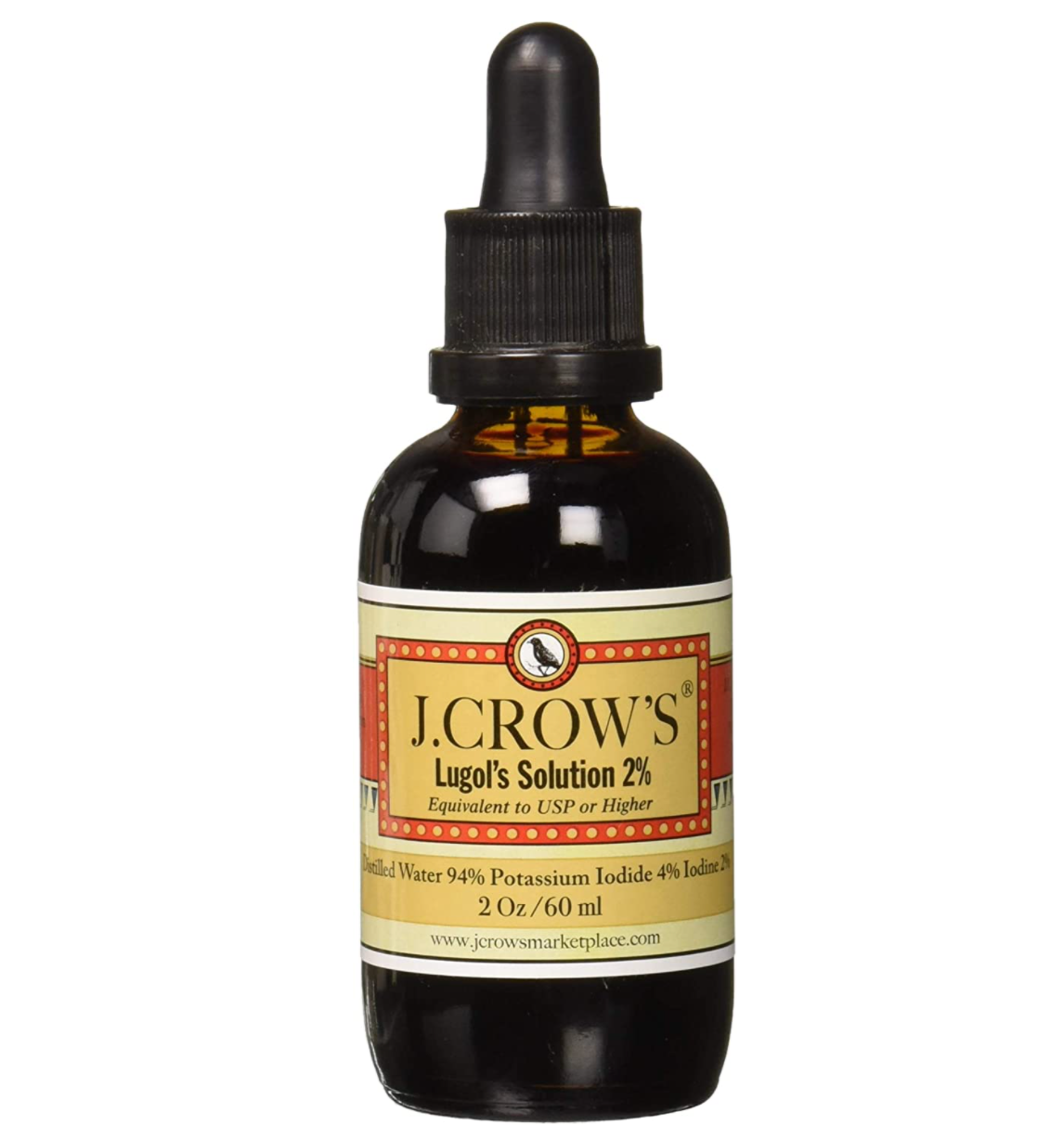
Iodine Deficiency in Nervous System Development in Children
Iodine deficiency during pregnancy, in babies, and in children is a serious issue. Indeed, a deficiency of iodine during pregnancy or early childhood can lead to cretinism, developmental delays, and other nervous system disorders that are entirely avoidable with iodine supplementation. Most serious though perhaps is the connection between Sudden Infant Death Syndrome (SIDS) and iodine deficiency, a health issue that can lead to death.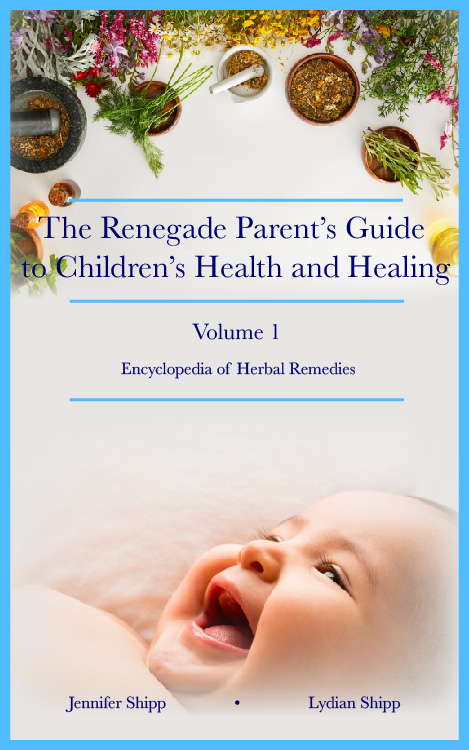
Iodine Deficiency and Mental Health
Some of the clearest evidence that iodine levels play a role in nervous system health are scientific studies that have examined iodine deficiency and its effects on cognition. Iodine is essential throughout the lifespan to promote neurogenesis and synaptogenesis (the growth or production of new brain cells and synapses or nerve cell connections), neuronal and glial cell differentiation, proper myelination, and neuronal migration.Several studies have shown that there’s a link between not just iodine deficiency and depression but also between the nutrients that support iodine metabolism in the body and depression. Many of the supportive nutrients that we recommend as a part of the Iodine Basic Protocol are necessary to produce enzymes to break down the Lugol’s iodine and use it properly in the body among other things.
As one of two major ingredients in thyroid hormones, it isn’t hard to see how iodine deficiency could lead to hypothyroidism. If a person is deficient in iodine or L-tyrosine (or L-phenylalanine as the precursor to L-tyrosine), thyroid hormone levels will be low. And if thyroid hormone levels are low, even sub-clinically low, a person may experience “brain fog” and symptoms of depression as a result. A hypothyroid-induced depression may be the reason why some people do not respond to conventional antidepressant medications which treat neurotransmitter imbalances, not thyroid hormone imbalances. Indeed, conventional antidepressants like SSRIs can inhibit the absorption of calcium into bones which, in turn, makes it impossible for the body to absorb iodine (calcium is an iodine inhibitor). In people who suffer from depression due to iodine deficiency, SSRIs could actually worsen the problem by making it impossible for the thyroid gland to obtain the iodine that it needs to function properly.

Click here to learn more and subscribe to the Living Database now.
Additionally, as with Complex Regional Pain Syndrome and Autism, clinical depression is correlated with low “methyl-” groups. We discuss this problem in greater depth in regard to cures for Complex Regional Pain Syndrome below. But scientists have found that people with depression tend to have low methylfolate levels. This is often due to the lack of methylfolate in staple foods like wheat, corn, and soy. Genetic modification of these plants into GMOs has made it so these staple foods no longer produce methylfolate or a variety of other essential nutrients that support mental health naturally.Selenium and iodine always go together nutritionally. If you have one of these nutrients without the other, the results will be less than optimal. Indeed, selenium deficiency, like iodine deficiency, is associated with poor mood and depression. In scientific studies, selenium supplements have been used as a natural treatment for depression as well as anxiety.
Likewise, oral zinc supplements have been used to treat clinical depression naturally and also improve the effectiveness of conventional depression treatments. Like selenium, zinc is an essential supportive nutrient that ensures that iodine can do what it needs to do in the body.
Click here to read about each of the supportive nutrients and how they ensure that iodine is used properly in the body.
Iodine Deficiency: Alzheimer’s Disease, Amyotrophic Lateral Sclerosis, Lewy Body Dementia, and Parkinson’s Disease
Scientists have acknowledged that iodine and other “biometals” like zinc, copper, and iron play a vital role in brain health. Without these biometals in proper quantities, the brain or nervous system tissues begin to degenerate which can lead to different forms of dementia including Alzheimer’s disease, Lewy Body Dementia, Parkinson’s Disease, and Amyotrophic Lateral Sclerosis.In addition to the direct link between iodine deficiency and dementia, there are also strong and important links that have been forged in the scientific community between RoundUp / Glyphosate organophosphate insecticides and dementia. Click here to read more about this connection between dementia and organophosphates.
Anyone who is looking for a cure for Alzheimer's disease, Parkinson's disease, Lewy Body Dementia, or Amyotrophis Lateral Sclerosis should also learn more about vitamin B12 deficiency which can cause the exact symptoms of any of these neurological diseases. Vitamin B12 deficiency is often associated with iodine deficiency. Click here to read more about vitamin B12 as a cure for dementia.
Click here to read more about the link between different types of dementia and iodine deficiency here.
Iodine Deficiency and Complex Regional Pain Syndrome
First and foremost, I need to start by saying that there is a connection between hypothyroidism and Complex Regional Pain Syndrome. And since hypothyroidism is almost always caused by a combination of iodine deficiency and bromide toxicity, it’s vital to mention this connection to our readers.About a year ago, we worked with a client with Complex Regional Pain Syndrome. This man had some success using the Iodine Basic Protocol, but none of us knew just why it worked. Recently, however, we found out that many of the drugs used to treat Complex Regional Pain Syndrome in conventional medicine are bisphosphonates. Suddenly, it all made sense.
Some of the bisphosphonate drugs that are often prescribed for CRPS treatment include:
- Zoledronic Acid / Zoledronate
- Neridronate
- Pamidronate
- More..
Click here to read more about the dangers of bisphosphonate drugs.
Click here to read more about how Complex Regional Pain Syndrome drugs work and why you should avoid them.
Complex Regional Pain Syndrome is a painful disorder that can destroy one’s quality of life. So it deserves some discussion here. The fact that Big Pharma takes aim at CRPS using bisphosphonates provides a clue regarding the actual cure for Complex Regional Pain Syndrome. This is a complex topic that we discuss in depth in our book, Root Cause: Common Environmental Toxins and How to Protect Yourself from Them, but suffice it to say for now that there is a direct link between the two most common types of insecticides and iodine deficiency and vitamin K2 deficiency. The two most common types of agricultural insecticides are:
- Bromide-containing insecticides
- Organophosphate insecticides
Neither of these insecticides cause iodine or vitamin K2 deficiency. Rather, a deficiency of iodine or of vitamin K2 makes people vulnerable to bromide or organophosphates such that they develop disease after exposure. But in addition to exposure through insecticide application in agricultural contexts, many people today are also exposed to organophosphates and bromide via pharmaceuticals.
Click here to read more about drugs that contain bromide.
Click here to read about bisphosphonate drugs that contain organophosphates. It’s imperative that you read more about the government-sponsored nutrient deficiencies to fully understand how exposure to bromide-containing insecticides or organophosphates can cause CRPS or other diseases. Click here to read more about government-sponsored nutrient deficiencies.
Glyphosate or “RoundUp” is a type of organophosphate that specifically has been studied in terms of its connection with the development of autism, but also Long COVID, a disease that shares certain similarities with Complex Regional Pain Syndrome. Again, a person with CRPS is likely to be deficient in either iodine or vitamin K2 or both nutrients and then, they become susceptible to developing a disease as a result of exposure to organophosphates or bromide-containing insecticides. It’s possible that the cure for Complex Regional Pain Syndrome in most patients is simply Lugol’s iodine. This may be due to the fact that bromide causes nervous system dysfunction. But if you give a person bisphosphonate drugs, it’s unlikely that they’ll ever discover iodine as a cure for CRPS. Indeed, though the drugs may work up to a certain point, they will also sicken the patient and exacerbate existing vitamin K2 deficiency.
Glyphosate / RoundUp in particular has an impact on nervous system health and it is used widely in agriculture. This organophosphate insecticide is known to disrupt the nervous system. Click here to read more about glyphosate and Complex Regional Pain Syndrome as well as other nervous system disorders caused by exposure to this organophosphate insecticide.

Click here to buy Root Cause: Common Environmental Toxins and How to Protect Yourself from Them.
Indeed, many parents of children with autism have discovered that methylfolate, the natural vitamin B9 that’s normally produced by plants that are not genetically modified, helps relieve symptoms of autism. Scientists believe this is because methylation (from the “methyl-” group attached to the folate) turns on or off certain genes that can cause disease. Scientists have found the same to be true for Complex Regional Pain Syndrome. They hypothesize that the underlying cause of Complex Regional Pain Syndrome is epigenetic malfunctioning that occurs as a result of a lack of “methyl-” groups in the diet. This theory is interesting, but studies don’t mention the fact that a lack of methylfolate in the diet happens because genetically modified (GMO) foods do not contain methylfolate (or menaquinone-7 / vitamin K2 or a variety of other essential nutrients) anymore. Indeed, the GMO plant-foods like wheat, corn, and soy, are genetically modified to not go through the “Shikimate Pathway” through which plants naturally produce nutrients like methylfolate. By halting the Shikimate Pathway, Big Ag has created GMO plants that can be sprayed with organophosphates and these GMO plants will not die. Rather, the weeds that still go through the Shikimate Pathway will die instead, making it easier for farmers to grow a monoculture of crops that keep Big Pharma rolling in profits. As long as the GMO plants do not go through the Shikimate Pathway, they survive crop sprays. Meanwhile weeds are controlled, but at a cost. The GMO plants no longer produce many of the most important nutrients that our bodies need to be healthy.As a cure for Complex Regional Pain Syndrome, the Iodine Basic Protocol works in part through the supportive nutrients, many of which are nutrients that were once prolifically available in our natural, staple foods (wheat, corn, and soy), but that are now practically non-existent due to the widespread use of GMO plants. Click here to read about each of the supportive nutrients and how to do Iodine Therapy properly to cure CRPS.
In summary, the cure for Complex Regional Pain Syndrome is likely dietary and when I’ve worked with CRPS clients, I urge them to start by taking Lugol’s iodine and the supportive nutrients. I also urge CRPS clients to get plenty of sunlight exposure daily without sunscreen because of the interaction between melanin and the sympathetic nervous system. Melanin is a substance that colors the skin and it’s made up of sulfur as well as other colorful ingredients such as the quinones (Menaquinone-7 / vitamin K2) and iodine. Melanin acts both to protect our bodies from unhealthy forms of radiation (via its iodine content) while helping our bodies absorb healthy forms of radiation. Click here to read more about Testicular Tanning and how exposing the body to sunlight can heal disease.
Also click here to read more about melanin and its connection to the Sympathetic Nervous System, a part of the nervous system that plays a major role in the cure for CRPS.
Click here to read more about the link between organosphosphate exposure, methylation, and vitamin K2 supplementation.
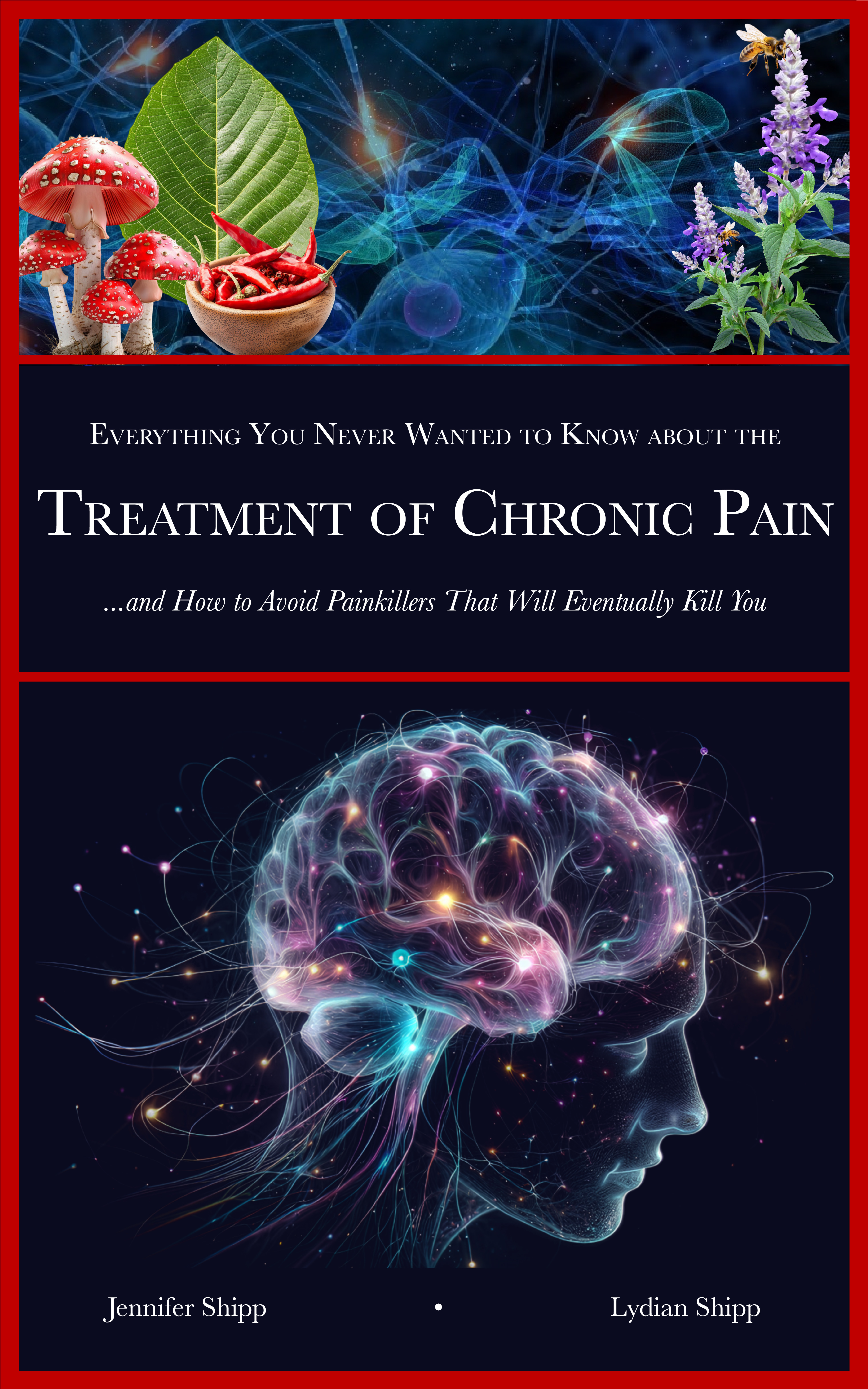 Everything You Never Wanted to Know About the Treatment of Chronic Pain... and How to Avoid Painkillers That Will Eventually Kill You - BUY HERE!!!
Everything You Never Wanted to Know About the Treatment of Chronic Pain... and How to Avoid Painkillers That Will Eventually Kill You - BUY HERE!!!
Iodine Deficiency and ADHD
Attention Deficit Hyperactivity Disorder or ADHD is often caused by an iodine deficiency which plays a role in the overall condition, though it may not be the only causative problem. Children often behave in a manner that’s opposite to their state of arousal. In other words, a child that is overwhelmed or over-stimulated may fall asleep. In contrast, a child that is sleepy or brain-foggy may become hyperactive. Indeed, the cure for ADHD is Mucuna pruriens along with supportive nutrients which include Lugol’s iodine. Alternatively, a parent of a child with ADHD may also choose to give their child the amino acid L-Tyrosine along with Lugol’s iodine to ensure that their child can produce plenty of thyroid hormones (to ensure normal metabolism and a balanced, wakeful state) along with dopamine, noradrenaline, and adrenaline. Lugol’s and L-Tyrosine are the primary nutrients that are used to produce these various neurotransmitters and hormones. Without adequate levels of Lugol’s iodine and L-Tyrosine, children become hyperactive and begin manifesting the symptoms of ADHD. Click here to read more about an ADHD diet that includes necessary nutrients like L-Tyrosine or Mucuna pruriens along with Lugol’s iodine.Click here to read more about Mucuna pruriens as a cure for ADHD.
Click here to read more about L-Tyrosine and other amino acids to treat ADHD naturally.
Iodine Deficiency and Autism
As we discussed a bit in the section above about Complex Regional Pain Syndrome cures, the development of autism also has links to methylation, iodine deficiency, and vitamin K2 deficiency which create a vulnerability to organophosphate insecticides as well as bromide-containing insecticides. Bromide / bromine is a known brain toxin that can have devastating effects on nervous system development in children who are deficient in iodine. And organophosphate exposure is even more tragic when methylfolate and other quinone-nutrients are unavailable to women during pregnancy or to children during the first few years of their lives.Click here to read more about autism and nutrient deficiencies.
Click here to read more about decalcification of the pineal gland using vitamin K2 to reduce symptoms of autism naturally.

The AlivenHealthy Iodine Bible - Everything you need to know to get started taking iodine and more!
Resources:

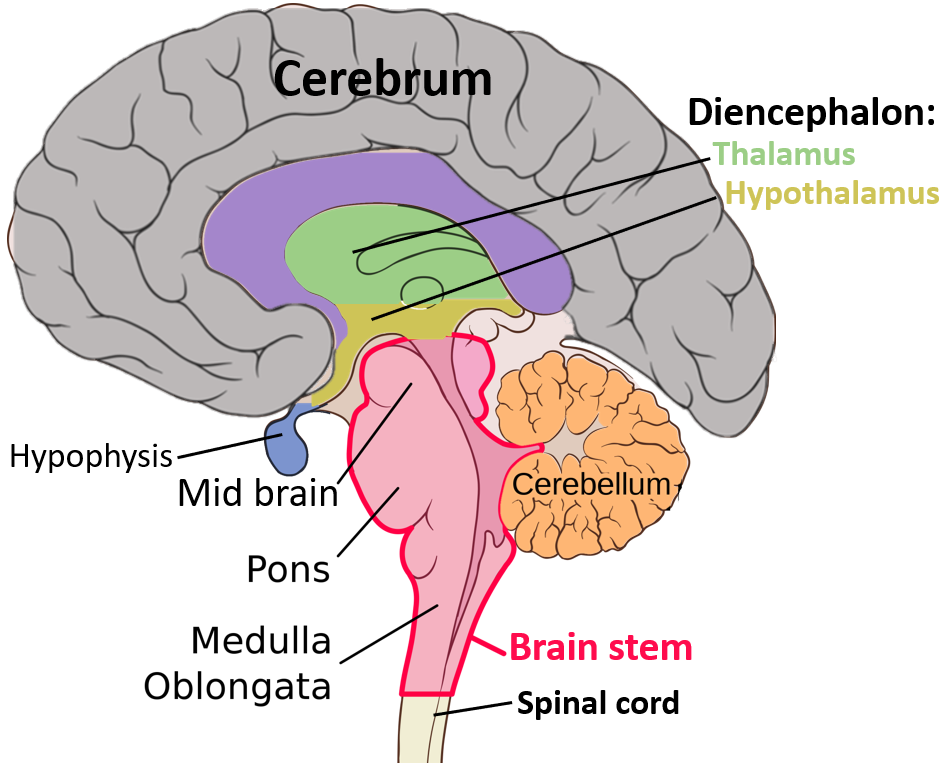 "Iodine" is almost a bad word in most clinics and hospitals, yet this simple nutrient can heal so many diseases. What a shame more patients don't know that iodine can be used as a cure for dementia and other serious diseases and disorders of the nervous system.
"Iodine" is almost a bad word in most clinics and hospitals, yet this simple nutrient can heal so many diseases. What a shame more patients don't know that iodine can be used as a cure for dementia and other serious diseases and disorders of the nervous system. L Methylfolate 15mg | 120 Capsules | Value Size | Max Potency | Optimized and Activated | Non-GMO, Gluten Free | Methyl Folate, 5-MTHF | by Opti-Folate
L Methylfolate 15mg | 120 Capsules | Value Size | Max Potency | Optimized and Activated | Non-GMO, Gluten Free | Methyl Folate, 5-MTHF | by Opti-Folate
 NOW Supplements, MK-7 Vitamin K-2 100 mcg, Cardiovascular Support*, Supports Bone Health*, 120 Veg Capsules
NOW Supplements, MK-7 Vitamin K-2 100 mcg, Cardiovascular Support*, Supports Bone Health*, 120 Veg Capsules
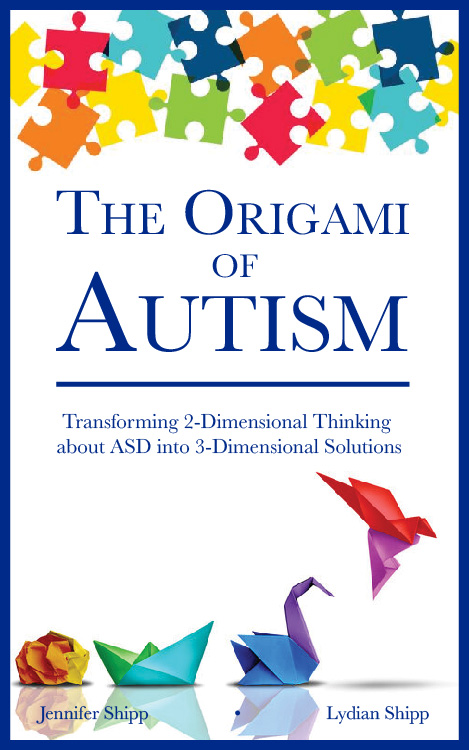 The Origami of Autism: Transforming 2-Dimensional Thinking about ASD into 3-Dimensional Solutions - BUY HERE!
The Origami of Autism: Transforming 2-Dimensional Thinking about ASD into 3-Dimensional Solutions - BUY HERE! Now Foods L-Tyrosine 500mg, 300 Capsules - Non GMO - Supports Mental Alertness - 500 mg Caps - Free Form Supplement
Now Foods L-Tyrosine 500mg, 300 Capsules - Non GMO - Supports Mental Alertness - 500 mg Caps - Free Form Supplement
 Mucuna Pruriens Capsules, Triple Strength 1500mg Per Serving, 2 in 1 Formula, Made with Mucuna and Ashwagandha, 240 Capsules, Potent Seed Extract, Positive Mood, Relaxation & Restoration Support
Mucuna Pruriens Capsules, Triple Strength 1500mg Per Serving, 2 in 1 Formula, Made with Mucuna and Ashwagandha, 240 Capsules, Potent Seed Extract, Positive Mood, Relaxation & Restoration Support








